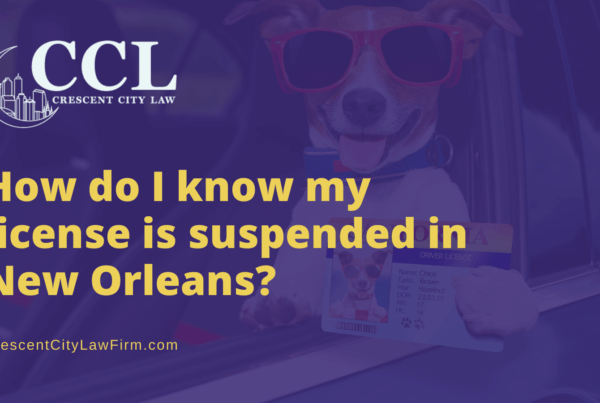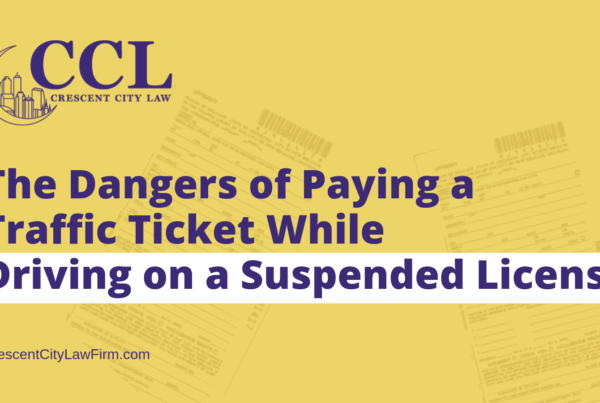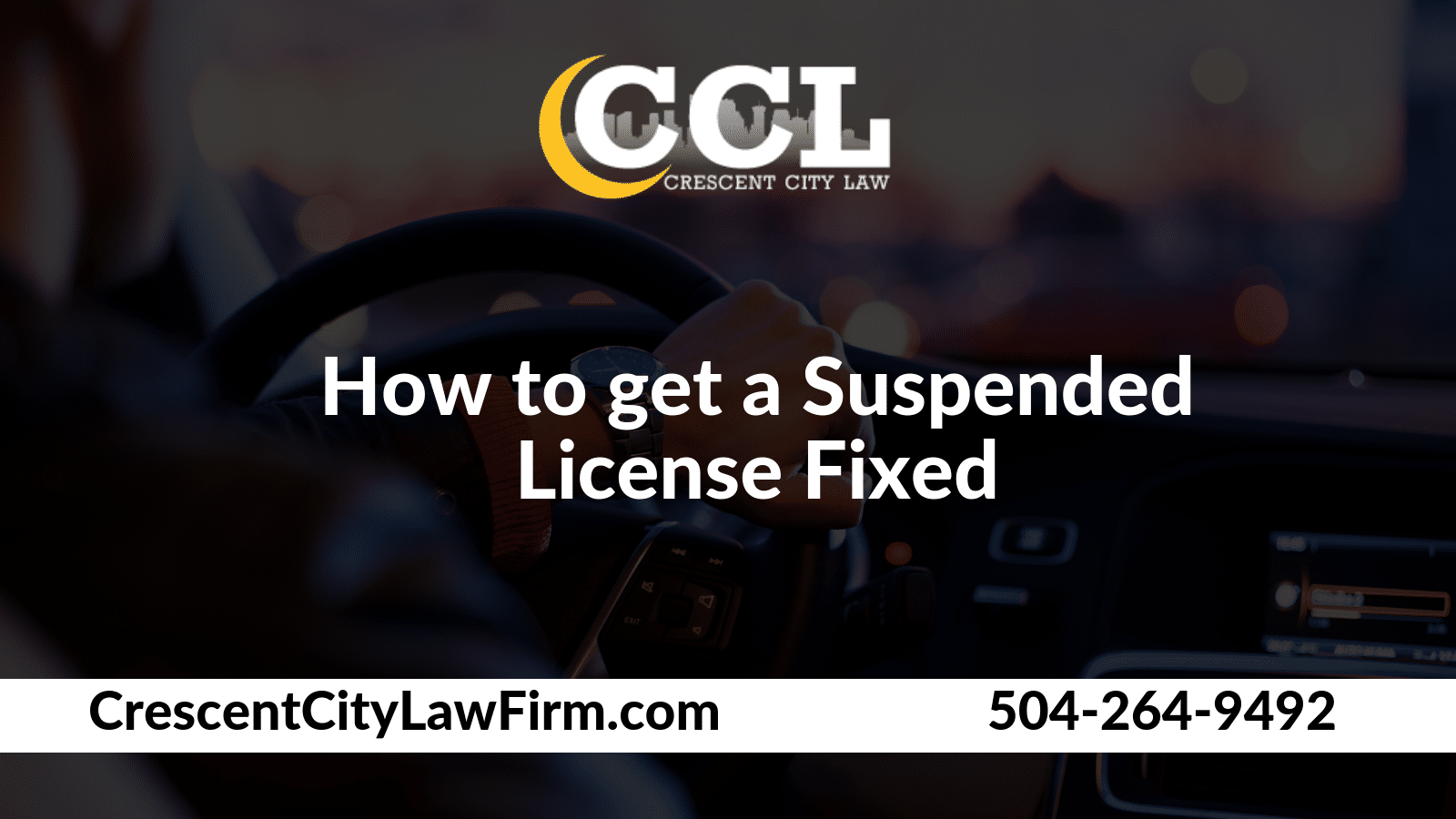Car accidents happen every day in Louisiana, which is why the state takes driving laws very seriously. For certain violations, you could even have your license suspended or revoked.
The office commonly known as the “DMV” in other states is known as the “OMV” in Louisiana: the Office of Motor Vehicles. The Louisiana courts report all of your traffic violations to the OMV, and either the OMV or the courts can issue a license suspension if your violation is serious enough.
At Crescent City Law, we know how important being able to drive is. That’s why we’ve helped countless clients get their licenses reinstated after a suspension. Read on for our breakdown on license suspensions in New Orleans and throughout Louisiana.
What can lead to a license suspension in Louisiana?
The OMV is not going to suspend your license for any old speeding ticket. You have to be found guilty of a serious offense on the road, or stack up enough violations to make the state concerned about the safety of others.
Here are some of the offenses that can lead to a license suspension:
- A DUI
- Refusing to submit to a sobriety test
- Committing a felony involving a vehicle
- An accident that kills or seriously injures someone
- Three reckless driving tickets in one year
In most cases, your license won’t be suspended until after you’ve been convicted. However, in the case of a DUI, your suspension could begin the moment that you refuse or fail a sobriety test on the road.
How long will my license be suspended?
How long your Louisiana license remains suspended will depend on the offense you’ve committed.
For example, if you fail a breathalyzer test, your license will be suspended for the following terms:
- 1 year for your 1st conviction
- 2 years for your 1st conviction, if your BAC is 0.2% or more
- 2 years for your 2nd conviction
- 4 years for your 2nd conviction, if your BAC is 0.2% or more
- 3 years for your 3rd DWI conviction
There are many different offenses that could lead to a license suspension. In order to find out just how long your suspension is going to last, consult with an experienced traffic attorney.
How can I get my license reinstated?
After the period of your suspension is over, you will have to satisfy court requirements in order to have your license reinstated.
But who has time to wait that long — especially in a city like New Orleans? Driving is an essential part of modern life, and not being able to drive can make many people’s lives very hard.
For that reason, the court sometimes issues restricted licenses, or “hardship licenses.” These can be issued for any of the following reasons:
- Driving (and from) to Work
- Driving to School
- Driving to doctors’ appointments
- Driving to Religious Services
And if that fails, there are a number of other ways to get your license back before your suspension period is over:
- Request that the courts allow you to do community service if you can’t pay your traffic violation tickets.
- Ask the judge to combine ticket payments into a lump sum to make it easier to pay off.
- Work with an attorney to fight each outstanding ticket to have it removed from your record and the corresponding ticket costs removed.
- File a motion to dismiss the old tickets if they are now too old for New Orleans to prosecute you for.
- Sue the DMV/OMV to get them to issue you a license.
- Request a Hearing with the DMV to challenge your suspension.
- If you lose the Hearing, you can always sue the DMV and ask a judge to order them to issue you a driver’s license.
Whatever route you take, you’ll want an experienced traffic attorney by your side to help you get your license reinstated.
Contact a Louisiana traffic attorney
At Crescent City Law, we make it our business to help you drive as much as you need without the burden of traffic tickets or license suspension. We have the experience and resources to help you no matter what your situation. Contact us today to schedule a consultation and talk about your case.






